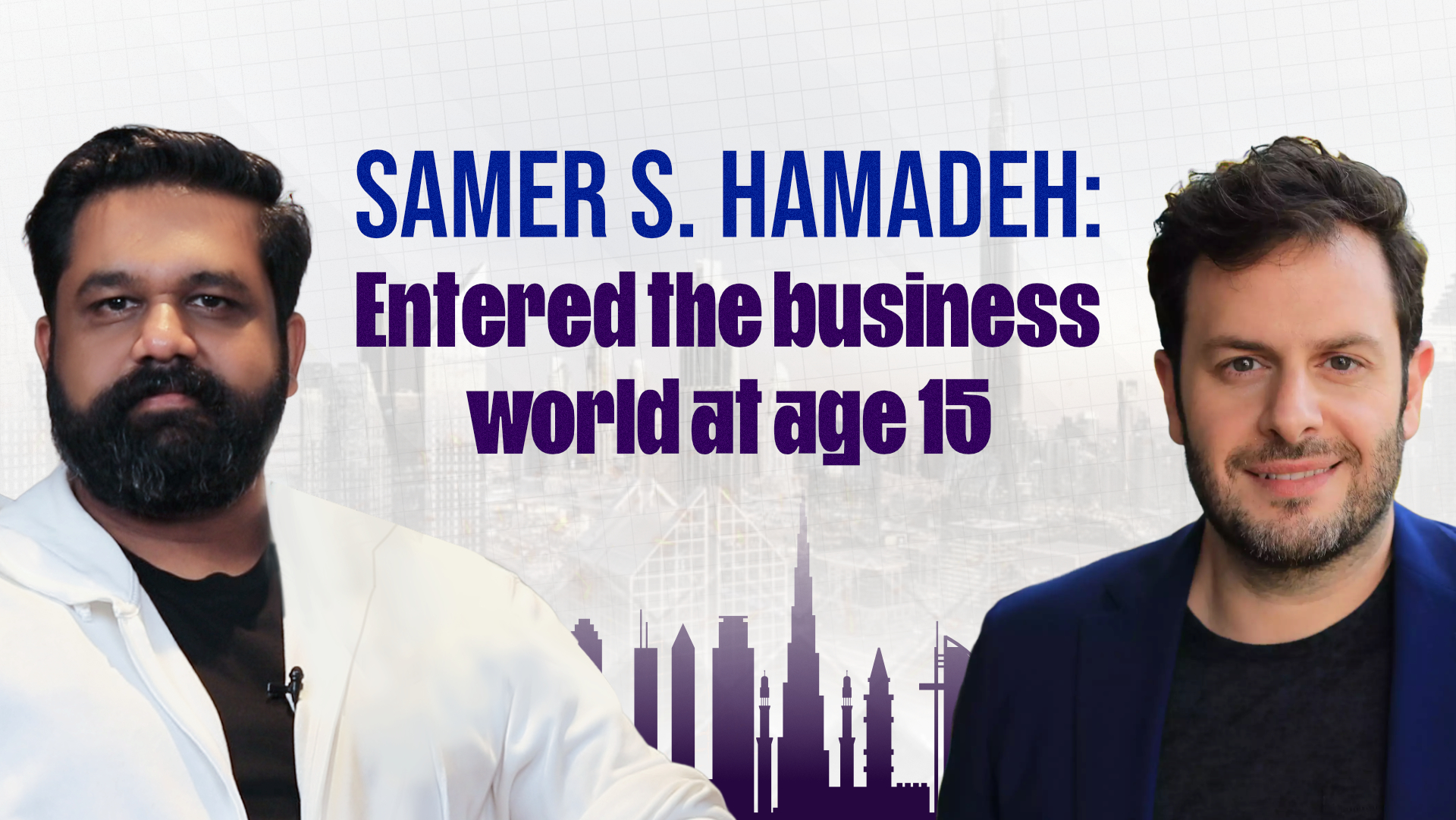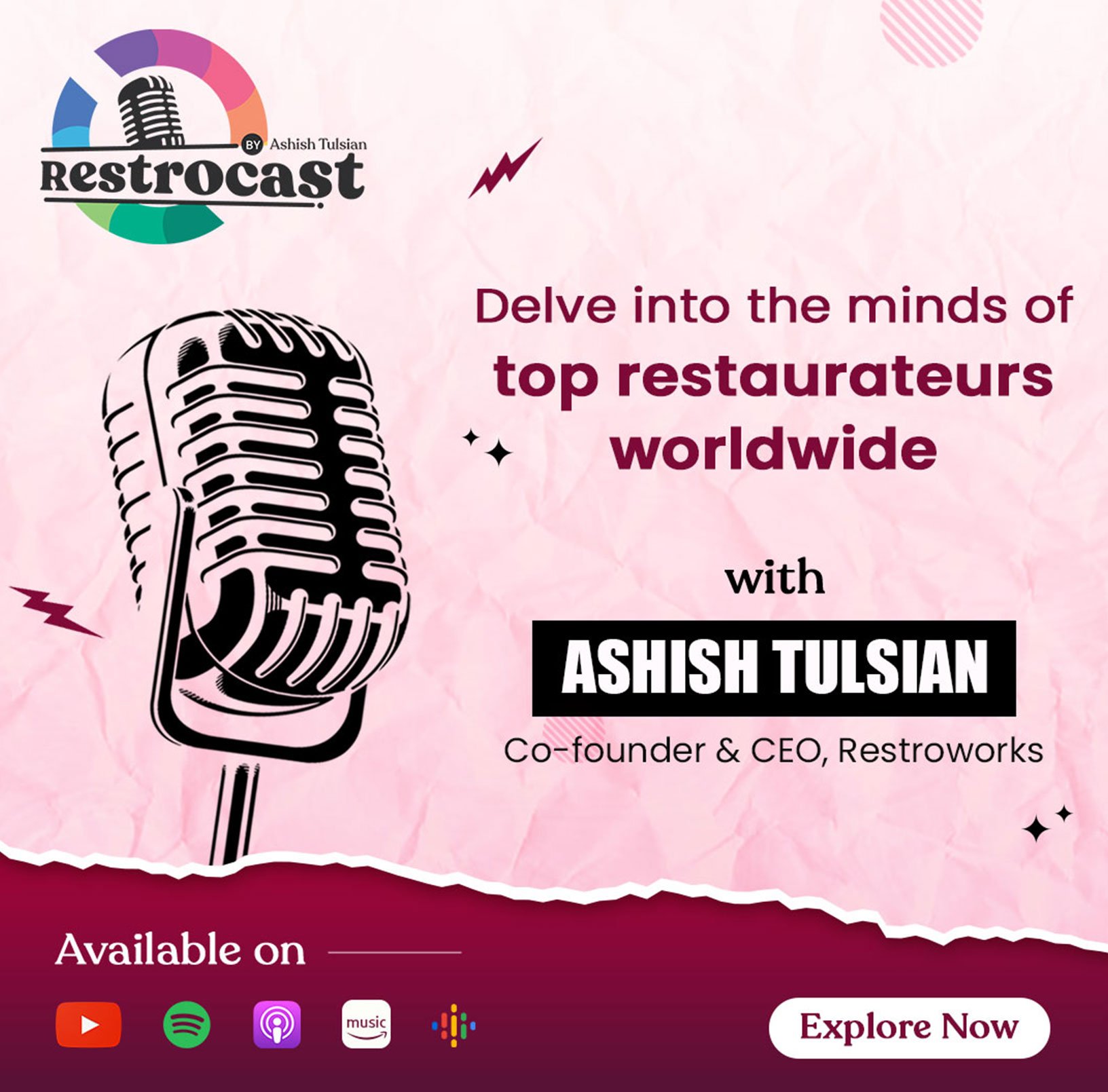
Samer S. Hamadeh is a man of boundless creativity and a master of turning ideas into thriving ventures. From organizing a music festival at the age of 15 to building unique hospitality concepts like Akiba Dori and Stereo Arcade, his entrepreneurial journey has been fueled by an innate desire to create and innovate. A self-proclaimed “zero-to-one” guy, Samer thrives in the creation phase, always moving on to the next challenge once his vision comes to life.
In this candid conversation on Restrocast, Samer shares his early beginnings, the stories behind his iconic projects, and the invaluable lessons he’s learned about entrepreneurship, creativity, and leadership.
Samer, welcome to Restrocast! Let’s start at the very beginning. Can you tell us about your early years and how your journey as an entrepreneur began?
Samer S. Hamadeh: Thank you for having me! My entrepreneurial journey began when I was 15, during a summer in Lebanon. I was bored and wanted to do something different, so I decided to organize a music festival called Rap, Rock, and Rave. I got a $1,000 loan from my dad, invited indie bands, DJs, and even arranged transportation for attendees. It didn’t make money, but it was an incredible learning experience that sparked my interest in doing my own thing.
That’s incredible at such a young age! What was it about entrepreneurship that drew you in so early?
Samer S. Hamadeh: I think I always knew I wanted to create things my way. From those early experiences, I realized I enjoyed taking risks, organizing events, and building something from scratch. I didn’t want to follow the traditional route of working for someone else—I wanted ownership and control over what I did. That mindset has stayed with me ever since.
How did the move to F&B happen?
Samer S. Hamadeh: I wanted to create a business where customers paid upfront and left happy. Initially, I explored ideas like a high-end car wash or a subscription-based food service. But my love for music and nightlife eventually led me to open One on One, a bar-club hybrid. Although it was short-lived due to contractual issues, it taught me invaluable lessons about hospitality and the importance of legal safeguards.
From there, how did Akiba Dori come into existence?
Samer S. Hamadeh: After One on One, I continued exploring hospitality concepts. I wanted to create something that felt authentic yet different. That’s how Akiba Dori was born—a Japanese street food-inspired restaurant with a local vibe tailored for Dubai. It’s not your traditional Japanese restaurant, but it’s accessible and fun, which is what makes it unique.
What makes Akiba Dori stand out from other Japanese restaurants?
Samer S. Hamadeh: Simplicity. The menu is easy to read, and you don’t need to Google what you’re ordering. Plus, the space itself is unique. It’s designed like a vibrant indoor alleyway, complete with neon lights and unconventional elements like a Japanese lantern above the bar featuring Godzilla artwork. We also introduced Tokyo-style Neapolitan pizza, which was a first in the market and became a huge hit.
You’ve also created Stereo Arcade, another unique concept. Tell us more about that.
Samer S. Hamadeh: Stereo Arcade was one of my favorite projects. It was a hybrid space—a rock bar on one side, a nightclub on the other, and an arcade in the middle. It was 8,000 square feet of live music, retro gaming, and great vibes. The idea was to create an immersive experience that combined nostalgia with modern nightlife. At its peak, we were hosting 40 musicians a month and pulling in over 1,000 people a night.
Nightclubs and bars typically have a short lifespan. How do you navigate the economics of these ventures?
Samer S. Hamadeh: It’s all about making your money back fast—ideally within three years. Nightlife concepts have a shelf life unless you continuously refresh them, which isn’t always feasible. For example, we planned to revamp Stereo Arcade after four years, but it didn’t happen. Luckily, we closed before COVID hit, which turned out to be a blessing in disguise.
You’ve worked across various facets of hospitality—from nightlife to dining. How do you choose what to focus on next?
Samer S. Hamadeh: I’m driven by what excites me creatively. I love designing concepts and building experiences, whether it’s a nightclub, a restaurant, or something else entirely. I don’t get involved in operations because my passion is in the creation phase. Once the concept is running, I move on to the next challenge.
You’ve been clear about not enjoying operations or scaling. How has that shaped your role as an entrepreneur?
Samer S. Hamadeh: I’ve always been a “zero-to-one” guy—I love the creation phase. Operations and scaling don’t excite me. I’m more interested in designing concepts and figuring out how to bring them to life. Over the years, I’ve realized that I work best as an advisor or supporter rather than being hands-on with day-to-day operations. That’s why I created Big Mouth Concepts, my creative consultancy. It allows me to help others get into the industry, fine-tune their ideas, or develop concepts without being tied to traditional consultancy models.
What do you look for in a partner or a team member?
Samer S. Hamadeh: Ownership. I expect people to take full responsibility for their actions, whether it’s a success or a mistake. I’m not here to micromanage or fix problems for others. Honest conversations upfront are key—I need to know what I can expect from you and vice versa. If there’s alignment, great. If not, it’s better to part ways early. Ultimately, I want people who can run the business without me constantly being involved.
You mentioned that you find video games integral to your creative process. Can you explain that connection?
Samer S. Hamadeh: Absolutely. Video games have been a constant in my life. They teach problem-solving, immersion, and storytelling in ways that few other mediums can. I’m not talking about casual games but deep, narrative-driven adventures like The Legend of Zelda or Secret of Mana. For me, playing a game is like participating in an interactive movie, and it’s where I disconnect and recharge. I attribute 90% of my creativity to the mental stimulation I get from gaming.
You’ve mentioned wanting to create a legacy project. What would that look like?
Samer S. Hamadeh: My dream is to open a boutique hotel somewhere in Italy or France—25 or 30 rooms with a rooftop bar and a cozy café on the ground floor. It’s less about money and more about quality of life. I’d live there with my family, host people, and create an environment where hospitality feels personal and intimate. That’s the kind of legacy I want to leave behind.
Lastly, what advice would you give to aspiring entrepreneurs who want to follow a path like yours?
Samer S. Hamadeh: Be clear about what you’re passionate about and stick to it. Don’t try to do everything yourself—find partners or team members who complement your skills. Take risks, but don’t gamble recklessly. And most importantly, enjoy the process. If you’re not having fun or feeling inspired, it’s not worth it.
From throwing music festivals as a teenager to creating industry-defining hospitality brands, Samer S. Hamadeh’s story is one of relentless creativity, risk-taking, and passion for building experiences. Whether it’s nightlife, dining, or future legacy projects, Samer continues to inspire with his visionary thinking and belief in doing things differently.








